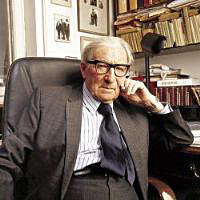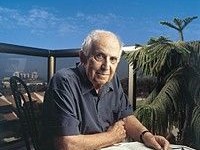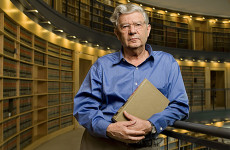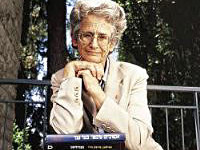
The Emet Prize is awarded to Prof. Moshe Jammer for being one of the greatest researchers of the philosophy of modern physics for some 50 years, for his new, original and fascinating research into the foundation stones of the exact sciences.
Prof. Jammer, born 1915 in Berlin, studied philosophy, mathematics and physics first at the University of Vienna and from 1935 at the Hebrew University in Jerusalem, where he received his Ph.D in 1942. After active service during the war in the British Army till 1945, he lectured on History and Philosophy of Science at the Hebrew University,
In the early fifties, while lecturing at Harvard University, he wrote the first of his studies on the philosophy of physics. His books, published in part by Harvard University Press and in part by Princeton University Press, have been translated into numerous languages, among them Russian, Japanese, Chinese and Greek, and have gained international recognition. His treatise, The Conceptual Development of Quantum Mechanics was republished by the American Institute of Physics in its series of Classics and his monograph Concept of Space carries a forward by Albert Einstein.
In the 1950s, while serving as professor at the University of Oklahoma, he was invited to establish a Department of Physics at the newly founded Bar-Ilan University. As its chairman for a number of years, he was instrumental in its development into a highly respected research center. He also served as Rector and President of the University.
Prof. Jammer also participated in the founding of the Department of History and Philosophy of Science at Tel-Aviv University, served at the National Committee for Higher Education, on a sub-committee of the Council for Atomic Energy, and as President of the Association for the Advancement of Science in Israel. He is a member of several national and international scientific academies and editorial boards of philosophical and physical periodicals.
For his research and publications Prof. Jammer has received many prestigious prizes, among them the Prize of the American Academy of Arts and Sciences as well as the Israel Prize.




